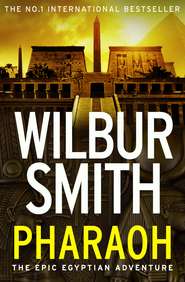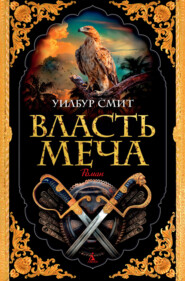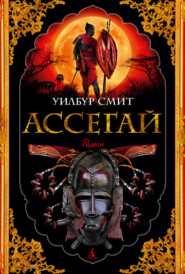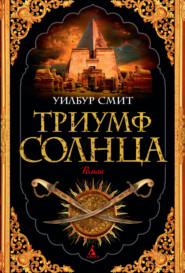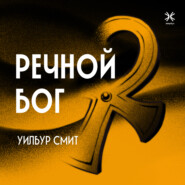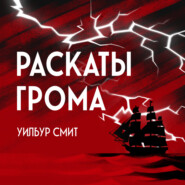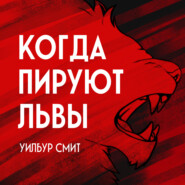По всем вопросам обращайтесь на: info@litportal.ru
(©) 2003-2024.
✖
Desert God
Автор
Год написания книги
2018
Настройки чтения
Размер шрифта
Высота строк
Поля
Abruptly we came out upon the bank of a deep channel which cut through the papyrus beds from the south in the direction of the open waters of the Middle Sea. It was about 150 paces wide, and I could see that it was too deep to wade. On the opposite bank of the channel I was able to make out the flat roof of the watchtower we had spotted the previous day. The helmeted heads of at least three of the guards were showing above the parapet as they patrolled their beats.
Suddenly I heard the unmistakable sounds of a moving vessel coming up the channel from the seaward direction of where we lay, and I cautioned my companions to silence. The creaking of the rigging, the voice of the seaman chanting the soundings in the bows and the thud of the oars in the rowlocks increased in volume until suddenly an enormous seagoing vessel appeared around the bend in the channel.
I had never seen a ship of this type or size before; however, I knew from descriptions that my spies had sent me that this was a Cretan trireme. She was both a cargo vessel and a warship. She was triple-decked, with three banks of oars.
Her long, pointed bows were reinforced with sheets of beaten bronze for ramming enemy ships. She had two masts, which would enable her to spread a goodly area of sail, although these were now furled as she threaded the narrow channel under oars. She was a lovely vessel, with long clean lines and a high transom. Looking at her it was not difficult to understand why Crete was the pre-eminent naval power of the world. This was the fastest and most powerful ship on all the seas. Even though she was heavily burdened and low in the water no other vessel could challenge her. Nevertheless I wondered what cargo she carried in her holds.
As she drew level with where we lay hidden in the reed beds, I was able to study her officers. There were three of them in the stern, standing aside from the four crewmen who were manipulating the long steering-oar. Although the cheek-pieces of their armour masked most of their features they seemed to be taller and more robust than our average Egyptian. I could see that their kilts were of the finest linen and that their weapons were lovingly polished and engraved. These were more warriors than they were merchants.
As she passed us the breeze wafted the stench of the ship to where we lay. I knew that her upper bank of long oars was rowed by her crew, who were fighting men more than they were beasts of burden. At an order from their captain they could jump up from the rowing bench and seize their weapons which lay at their feet. They would fight like men and share in the prize money.
However, the lower banks of oars were pulled by slaves who were shackled to the deck timbers. The stench I smelled was that of these unfortunates who would live their whole lives on the benches. They would row, sleep, eat, defecate and ultimately die where they sat.
The Cretan galley swept on past us and then we heard the shouted orders of her officers. The upper bank of oars rose from the water like the wings of a silver seagull as they were shipped, and only the lower banks continued dipping and pulling delicately as the ship turned into the final bend of the channel, heading towards the glistening white walls of the fortress which showed in the distance above the nodding heads of the papyrus banks.
Then a most extraordinary event occurred; something for which I was completely unprepared. A second ship, almost identical in every respect to the first, rounded the bend of the channel and rowed past where we lay. She also was low in the water, carrying a weighty cargo.
Then to my utter astonishment and delight a third heavily burdened trireme came down the channel and sailed past us. She followed her two sister ships towards the fort.
I realized what had happened. Three months previously I had been informed by my agents that the three treasure ships were prepared to sail from the principal Cretan port of Aggafer. However, it had taken many months for this information to reach me. In the meantime the departure of the convoy must have been delayed by unforeseen circumstances, the most probable reason being unfavourable weather conditions. My agents had been unable to warn me timeously of this delay.
I had expected to reach the Tamiat fort only long after the convoy had arrived, discharged its cargo and departed again on its return voyage to Aggafer.
The chances of me arriving at Tamiat at exactly the same time as the treasure convoy was so remote that it must have been arranged by divine intervention. From an early age I have known that I am a favourite of the gods, particularly of the great god Horus to whom I pray. How else could I have been gifted from birth with so many talents and virtues? How else have I been able to survive so many terrible perils and mortal dangers that would certainly have destroyed any lesser being? How else have I been able to stay so young and handsome and my mind so sharp when all those about me wrinkle, turn grey and fade away with age? There is something about me that has set me aside from most other mortal men.
This was yet another example of Horus’ favour and indulgence. I whispered my thanks to him and swore that I would make a lavish sacrifice to him at the very first opportunity. Then I crawled closer to where Zaras lay, and tugged his sleeve.
‘I must cross this channel and get closer to the Cretan fort,’ I told him.
There are two enigmas in our very Egypt that I have never been able to come to terms with. The first is that although we use the horse as beast of burden and the chariot as our primary weapon of war almost no Egyptian will ride astride. The second enigma is that although we live on the banks of a mighty river almost no Egyptian is able to swim. If you ask one of them why this is so, they will usually shrug and answer: ‘The gods frown upon such uncouth behaviour.’
I have already asserted that I am different from most others. I hesitate to suggest that I am in any way superior. I think it is sufficient to point out that I am both an expert horseman, and a strong and tireless swimmer.
I knew that Zaras has neither of these skills, although to give him full credit I have never seen him bested when he had the reins of a chariot in his hands. Thus I had ordered him to bring with him a buoy made from the bark of the cork tree to keep him afloat. The two of us stripped to our breech clouts and entered the channel. Zaras had his sword strapped to the cork float. I carried mine on my back. Zaras blew and puffed like a bull hippo, while I swam like an otter and reached the far bank of the channel before he was halfway across.
When he managed to complete the crossing I helped him ashore. Then, when he had regained his breath, we crept stealthily through the reeds towards the Cretan fort. When we reached a position from which he had a good view of the building I realized why the Cretans had selected this site. It was on the highest point of a narrow ridge of limestone which poked up through the soft alluvial soils and provided a strong foundation on which they had anchored their fortress.
This limestone intrusion divided the flow of the main channel to form a moat around the fort. There were a number of different types of vessels anchored in the basin formed by the sweep of the river around the fortress. Most of these craft were mere barges which I presumed the Cretans had used to carry building materials. There was not a single sea-going ship amongst them. The exception to this was the squadron of three magnificent triremes which had rowed past our hiding place earlier.
These were not anchored in the basin, but were already moored to the stone wharf directly below the main gate of Tamiat fortress. The gate stood wide open, and there was a gathering of uniformed soldiers on the wharf to welcome the new arrivals. I could see by the plumed helmets and gold decoration they sported that many of these were high-ranking officers.
In the time that it had taken Zaras and me to swim across the channel and reach our present position the crews had opened the hatches of the leading trireme and a chain gang of half-naked slaves was beginning the task of unloading her cargo. The slaves were working under the charge of a number of overseers who wore half-armour and short swords on their belts. All of them wielded whips of plaited rawhide.
The slaves were carrying a succession of identical wooden chests ashore over the gangplanks. Although the chests were not very large they were obviously heavy for the slaves staggered under the weight. The whole unloading process moved too slowly for the satisfaction of the overseers who harangued and ranted at the working gang.
As we watched, one of the slaves lost his footing while stepping from the gangplank to the wharf. He fell heavily and dropped the chest he was balancing on his head. It crashed to the stone slabs and burst open.
I felt my heart jump against my ribs as I saw the brilliant flash of sunlight reflected from the metallic surfaces of the silver ingots as they spilled out in a heap on to the wharf. The bars were small and rectangular, no longer than a man’s hand; however, there were twenty or more of them packed into the chest. A single chest of these bars would most likely have been sufficient to pay for the building of the great trireme which had carried it across the Middle Sea. All my hopes and expectations had been fulfilled. Here was the vast treasure that I had anticipated.
Three of the overseers gathered around the prostrate slave and wielded their whips with gusto, swinging the lashes from high above their heads to crack against his sweat-shiny skin. The man screamed and writhed and tried to cover his head with his arms. One of the lashes caught him in the face and popped his right eyeball out of its socket. It dangled on its optic cord against his cheek as he rolled his head from side to side. At last the slave lay unconscious, no longer able to protect himself. One of his tormentors stooped and grabbed his heels, dragged him on his back to the edge of the wharf, and then heaved him over the side. The body splashed into the river and sank swiftly, disappearing below the muddy surface.
On the wharf the other slaves responded at once to the shouts of the overseers and the cracking of their whiplashes. The file of half-naked men began to move again, tottering under their burdens as though the work had never been interrupted.
I tapped Zaras’ shoulder to get his attention and then we both crawled back deeper into the reed beds. Once we were safely hidden I led him around to the far side of the fort and the bank of the other branch of the river. It took me an hour or so of cautious and careful manoeuvring before I could find a vantage point from which I was able to overlook the strategic layout of the fort and its surroundings. Now I was able to verify in person the reports I had received from my spies.
Although the walls of the fort were formidable and probably even impregnable, the area they enclosed was not very large. There was a severely limited amount of space on the ridge, insufficient for anything more than the treasury alone, and barracks to house a detachment of guards to beat off any attempt to land by a small raiding party coming up one of the channels from the sea.
However, the Cretans must also have realized that they required a much larger force of several thousand men on hand to oppose any larger enemy force that might land on the coast and march inland to mount a more determined attack on the fort. They had solved this problem by stringing a pontoon bridge across both channels of the river, so that the fort sitting on the island in the centre of the river could be reached swiftly by defending Cretan troops from either bank.
From where I lay I had a good view across the most easterly channel to the flat dry ground beyond. This was where the Cretans had built their fortified camp, which provided barracks for the main body of their army. They had surrounded the camp with a protective palisade of sharpened logs, which stood twice the height of a man. I calculated that this camp would be capable of housing two or three thousand soldiers.
There was a watchtower at each corner of the square enclosure, and I could see that the roofs of the buildings within the palisade were plastered thickly with black mud from the river-bank which had dried hard. These would afford protection from the fire-arrows that an enemy might shoot over the walls.
From the gate in the wall closest to the river the Cretans had built a passageway of dried black mud-bricks to the head of the pontoon bridge. This would protect their troops from enemy arrows when they sallied forth from the camp.
They had used a series of longboats anchored side by side across both channels of the river to serve as the pontoons for their bridge. Over these they had laid a causeway of hewn planks. This bridge ensured that large numbers of troops could be rushed from the camp to wherever they were needed most.
‘They have planned it all thoroughly.’ Zaras gave his opinion as he surveyed the fortifications.
‘That is what the Cretans are most famous for … thoroughness,’ I agreed, but I was still studying the ground, seeking out any weakness in the Cretan defences. Search as I might I could find only one. That was the pontoon bridge itself, but I was confident that I could deal with that.
I switched my attention back to the wharf where the three great triremes still lay moored. I considered the manner in which the Cretans were unloading the cargo of the first ship. I could see that it was not very efficient. If I were presented with this task I would rig tripods and pulleys over the open hatches and hoist the chests of silver up to deck level on pallets. There I would have carts ready to trundle the chests across the wharf and into the gates of the fort.
The Cretan slaves were manhandling each chest individually up the ladder from the bottom of the hold to the main deck. At this rate it would take several days to unload each ship.
I was worried. I had not truly recognized the immensity of my own task until I saw it laid out before me. It was one thing to speak lightly of handling hundreds of lakhs of bullion, but it became entirely another matter when I was presented with the physical weight and bulk of such a treasure and the problem of seizing it and transporting it hundreds of leagues over sea and mountain and desert while being pursued by a vengeful army.
I began to worry that I had taken on an impossible task, and thought dismally that perhaps the only solution if I was ever able to get my hands on such a vast cargo was to take it out into the deep waters of the Middle Sea and to dump it overboard where it would be forever beyond the reach of both King Beon and the Supreme Minos.
Then I would flee with all my men who had survived the wrath of the Cretans back to the safety of Thebes. Perhaps the Supreme Minos could then be persuaded that King Beon was the culprit, but I doubted it.
The solution did not come to me at once, and even I had to wrestle with the problem for almost an hour while Zaras and I lay there in the papyrus beds. Then suddenly the solution struck me like a thunderbolt. It was so ingenious that even I was stunned by the beauty of it.
I thought I would explain it all to Zaras, but then I decided not to overpower him with something so simple and yet so devilishly complex.
I looked up at the sun. It had reached its zenith some time ago and was already halfway down the sky again. I looked back at the trio of treasure ships and I think I grinned. I sensed that Zaras was watching me intently. I think he knew that I was on to something at last, and he was waiting eagerly for my orders, which I was not yet ready to reveal to him.
‘Enough!’ I told him. ‘We must go.’
‘Where to, Taita?’
‘Back to the boats. We have a great deal of work to do before nightfall.’
The sun was setting when at last Zaras and I managed to swim and wade back to where we had left our three small boats in the lagoon. The men were overjoyed to see us again. I think they had convinced themselves that we had been discovered and killed by the enemy, leaving them leaderless and thrown back on their own limited resources. They scrambled to obey my orders.
The first of the many challenges facing me was to get every single one of my heavily armed and armoured men, almost none of whom were able to swim, across the deep channels of the river to reach the fort.
To this end I selected the smallest and lightest of our three boats. Then I made the men strip the ropes and other useful loose items from the remaining two hulls. I thought of burning these, but the Cretans would surely have seen the smoke and sent men to investigate it. Instead I ordered my men to knock the bottoms out of them and scuttle them in the deepest part of the lagoon.






